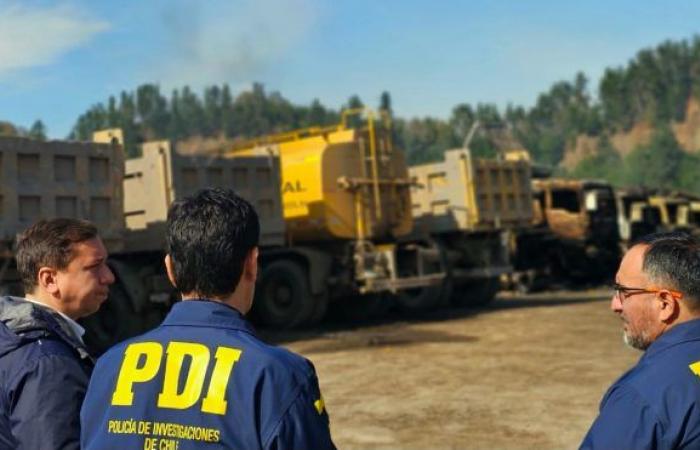Chile faces a turning point. The recent incendiary attack in Santa Barbara – which destroyed 45 trucks and machinery in the construction of the Rucalhue Central – not only hits a strategic energy investment. It also hits the hope of development in a region where poverty, unemployment and state abandonment have been for decades the norm.
It is urgent to get out of the tie.
On the one hand, there is an obvious need to advance projects that ensure clean energy, decent employment and regional development. On the other, the debate on the type of initiatives that we promote, its social, environmental impacts and the way in which they relate to the communities is also legitimate.
What cannot be accommodated in this conversation is violence. Not as pressure, or as a veto. Because when the fire is used to impose a vision, the possibility of building a common house is also burned. Even more serious: when it has been shown that many of these facts respond to criminal economic interests -such as wood theft, drug trafficking or organized crime -, the idea that violence represents social or environmental causes falls by itself.
Without security there is no possibility of development. And without development, there will not be peace either.
This does not mean closing the debate. On the contrary: it is time to sincere our development model. Today, the world walks towards more decentralized energy solutions, smaller scale and with less local impact. According to the International Energy Agency, the distributed generation, local solar projects and small hydroelectric plants are the segment that grows the most in Europe, Canada and Latin America.
-However, in Chile we remain stuck in a binary logic: Giant projects vs. Total opposition. And meanwhile, small and sustainable projects – which could offer the same benefits without the same costs – are trapped in the same tangle of procedures, permits and delays. There is no real distinction between low, medium or high impact. There is no fast -track for smaller-scale projects. There are no adequate incentives or institutionality for a fair energy transition, with citizen and territorial participation.
We stay in a zero sum: the big one is blocked, but nothing serious is done to facilitate the alternative. And that, at the end of the day, also paralyzes.
The real challenge is not to choose between development or territory. The challenge is to design a path where development occurs respecting the territories, and where the territories can grow without being trapped between abandonment and fire.
And that will only be possible if we advance on three simultaneous fronts: guarantee security for all, without ambiguities or double speeches; Ensure that large projects meet high social and environmental standards and transform the State, so that smaller -scale projects can really take off.
Chile needs to get out of the tie. Because development without security is illusion. And security without development, injustice.
Sign up in our newsletter The Opinion counterDo not miss the most prominent opinion columns of the week in your email. Every Sunday at 10am.






